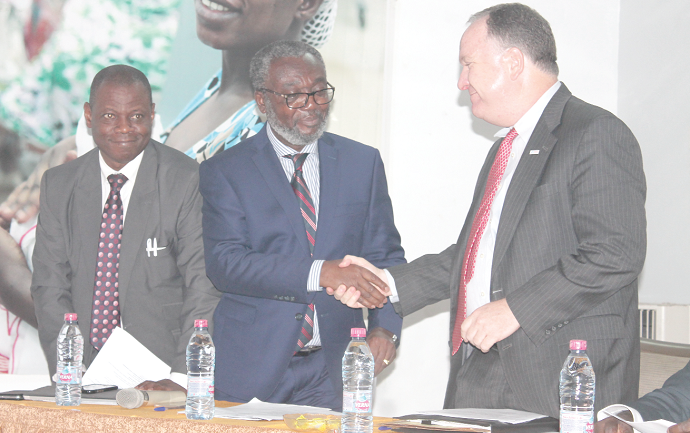
Stakeholders concerned about stagnant neonatal deaths record
The Ghana Health Service (GHS) says although antenatal care and skilled birth delivery have increased across the country, newborn deaths continue to be high.
Advertisement
Data on neonatal (newborn) deaths continued to hover around 30 deaths per every 1,000 live births for the last decade although antenatal attendance was 97 per cent, while skilled birth attendance was at 94 per cent.
To take stock of the implementation of the National Newborn Strategy and Action Plan 2014-2018, a national newborn stakeholders meeting is being held by the GHS, in collaboration with the United Nations Children’s Fund (UNICEF) in Accra.
The three-day conference which is the sixth annual conference is on the theme “Quality care, my right” and will, among other objectives, ensure that quality care is incorporated into neonatal services.
Objectives
It is also to raise awareness of the need for water, sanitation and hygiene (WASH) to be incorporated in providing quality health services to improve newborn survival.
The conference will also help develop annual national and regional action plans towards improving quality of care for newborns.
Addressing the opening session yesterday, the Director General of the GHS, Dr Anthony Nsiah-Asare, said it was a worrying situation that although antenatal attendance and skilled birth delivery were high in the country, children continued to die needlessly at birth.
He enumerated some of the causes of newborn deaths as premature birth, infections and complications during and after delivery.
He said data from the 2014 Demographic and Health Survey (DHS 2014) showed that newborn deaths stood at 29 deaths per every 1,000 live births as against 30 deaths per every 1,000 live deaths in 2008.
Quality care
Dr Nsiah-Asare said the GHS and its partners had identified that there was the need to put more emphasis on respect and quality care for patients, as well as improve on water and sanitation issues to promote good hygiene in health facilities.
He said the service, as part of its new agenda, would focus on human resource redistribution to ensure that doctors, nurses, specialists and other professionals helped to reduce the over-concentration of such persons in particular areas.
In an address, a Deputy Minister of Health, Mr Kingsley Aboagye Gyedu, said stagnation in the country’s neonatal deaths was the reason why Ghana was not able to meet the Millenium Development Goal (MDG) 4, which focused on reducing child mortality.
Dr Nsiah-Asare also called on the private sector to support in the area of neonatal care, saying there was the need for all to work across sectors to ensure that newborns survived.
Representatives from the United Nations (UN) Systems, the World Health Organisation (WHO), WaterAid and the Paediatric Society of Ghana pledged their commitments to help address issues of newborn care.




